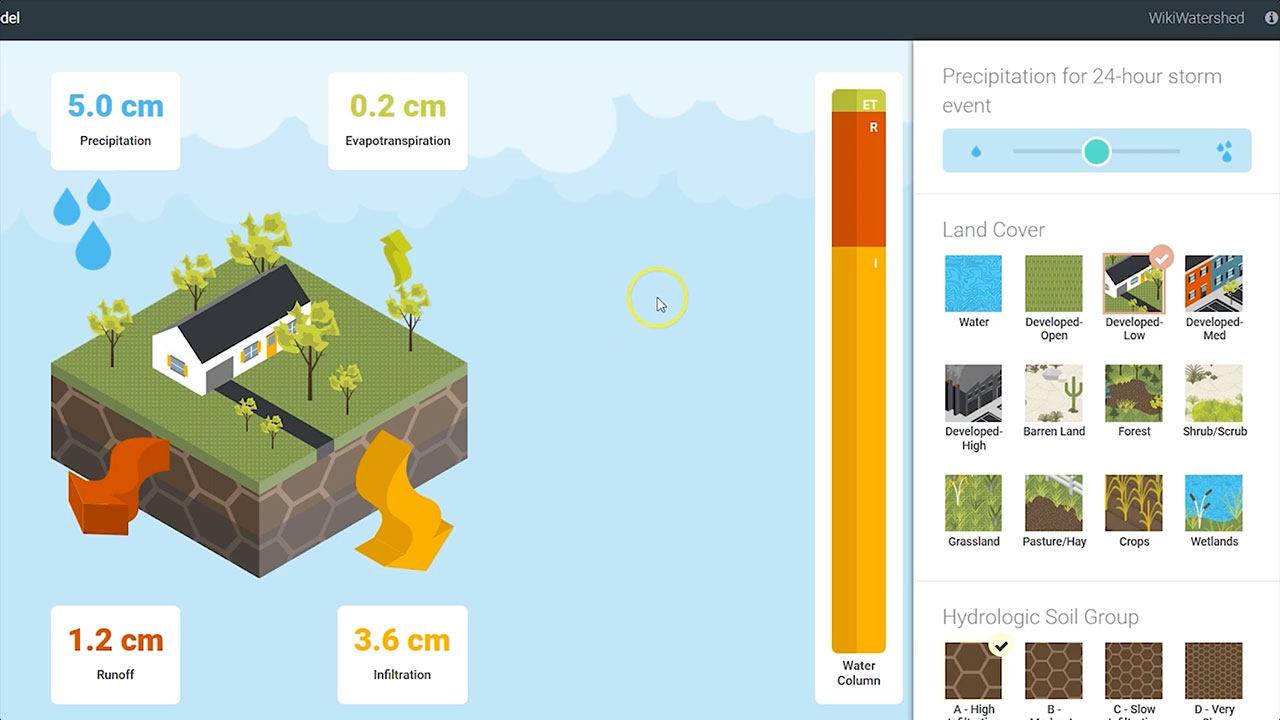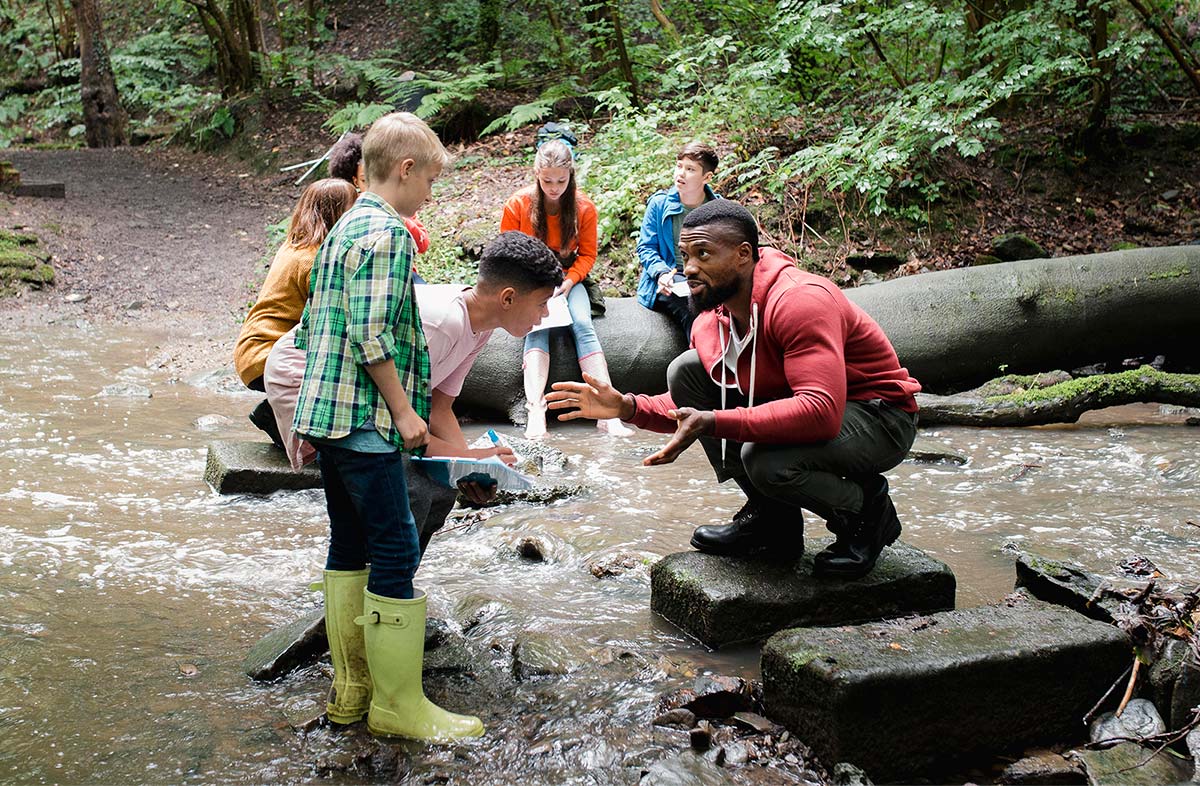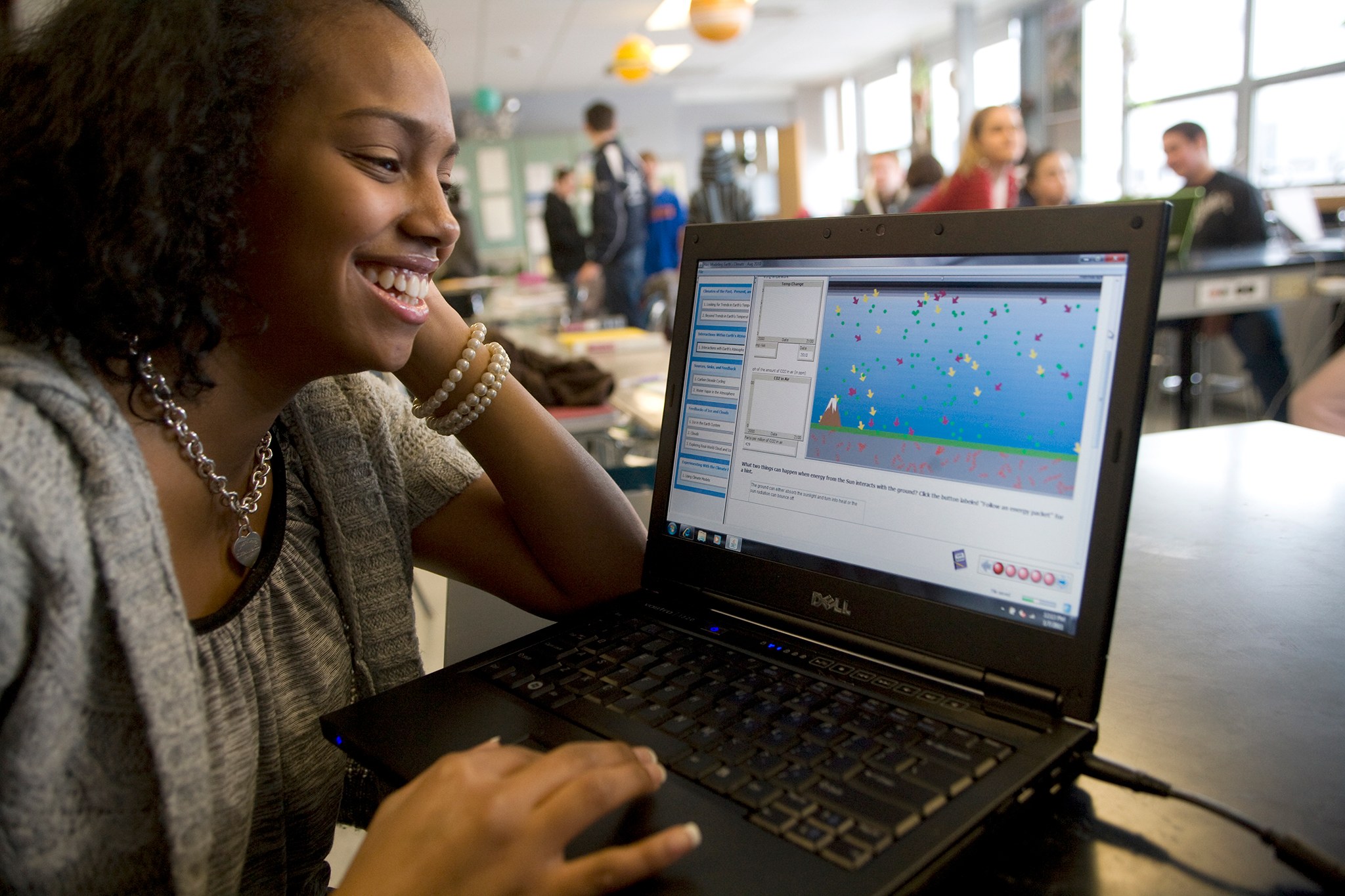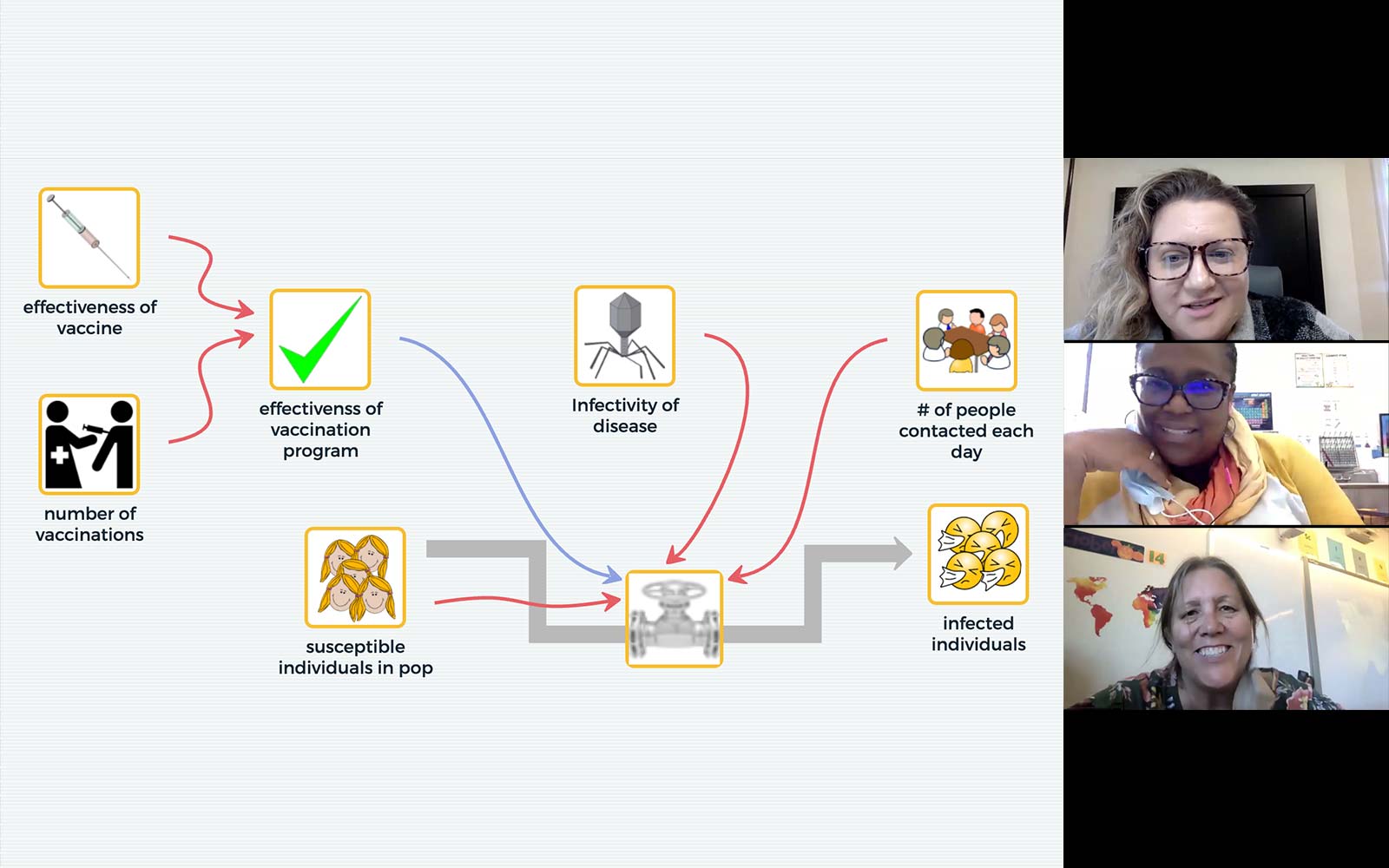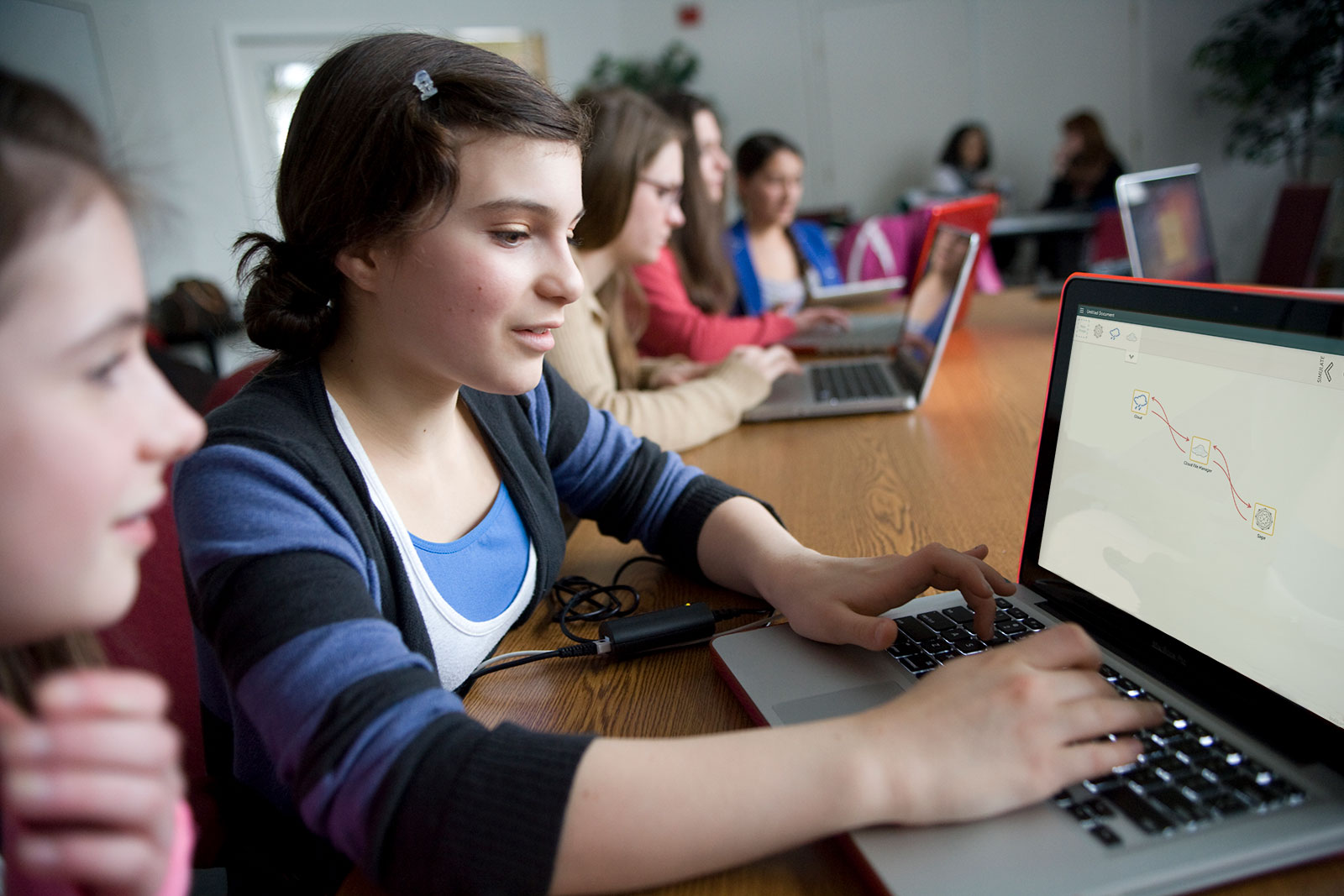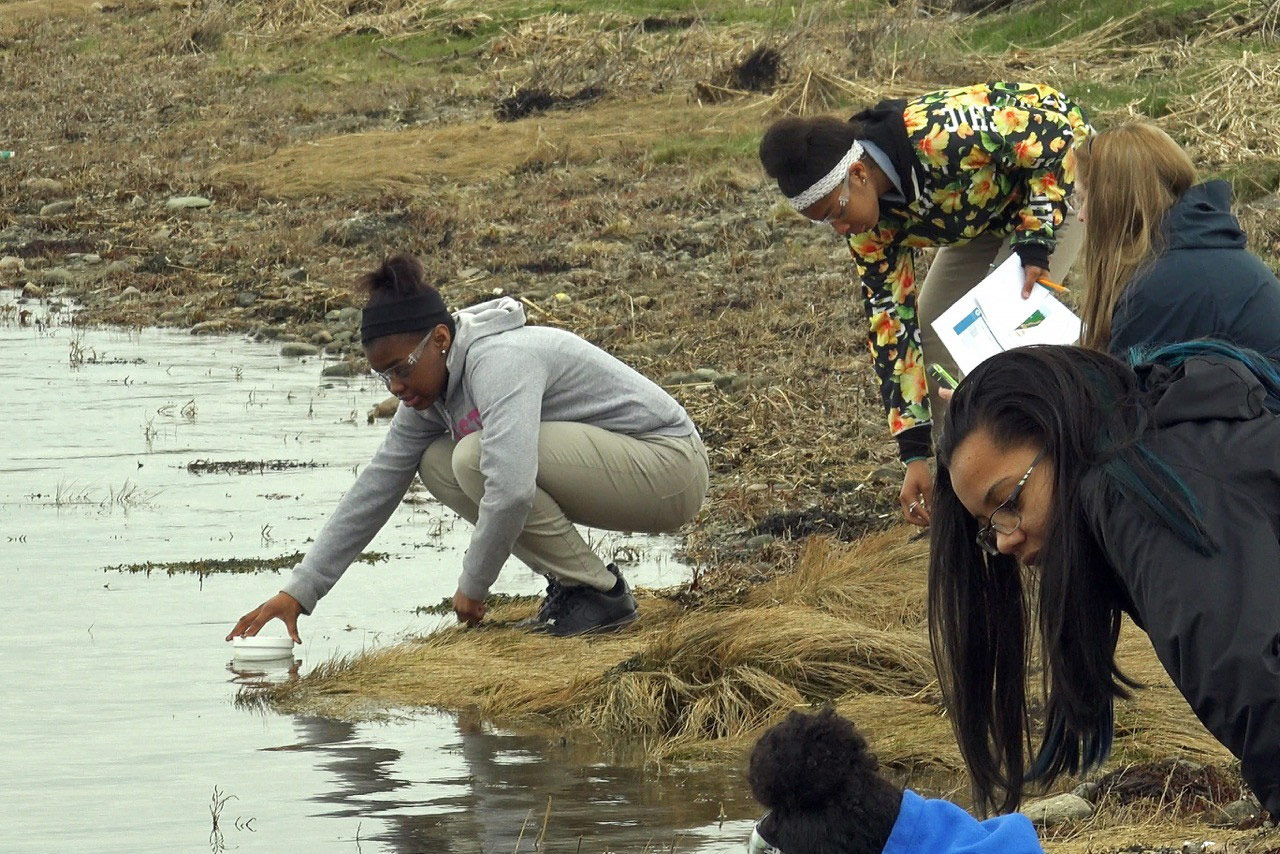Teaching Environmental Sustainability: MMW
Importance
To critically analyze and understand the many environmental, economic, and social problems facing society requires both systems thinking and geospatial reasoning skills. For example, protecting local drinking water is not simply a problem of hydrology. Human land use and climate impacts to our water resources are of particular concern, as access to abundant supplies of clean fresh water is a basic requirement. Water resources also affect, and are affected by, global food production and industry.
The Teaching Environmental Sustainability: Model My Watershed team includes Stroud Water Research Center and Millersville University. Together, we’re teaching a systems approach to problem solving through modeling and hands-on activities based on local watershed data and issues. Middle and high school students act in their communities while engaging in solving problems they find interesting.
Our goal is to promote geospatial literacy and systems thinking by providing students and teachers with access to scientifically valid and easy-to-use watershed tools to accurately examine their own neighborhoods, to define local environmental problems or challenges, and to develop solutions to improve their environment. Instructional materials include a new GIS-based web application to analyze real data on environmental impacts related to land use, water quantity/quality, and local socioeconomic impacts.
The new Model My Watershed app (MMW v2) brings new environmental datasets and geospatial capabilities into the classroom. The curriculum provides a cloud-based learning and analysis portal accessible from a Web browser on any computer or mobile device, thus overcoming the cost and technical obstacles to integrating GIS technology in middle and high school education. Students use a low-cost Watershed Tracker device to record data about their local watershed. This new low-cost environmental sensor allows students to collect and upload their own data and compare them to data visualized on the new MMW v2.
Research, curriculum development, and teacher professional development are taking place in five states across the country, including California, Iowa, Kansas, Pennsylvania, and Kansas CA, ensuring that project outcomes reach urban and rural populations.
Research
- Results indicate that both genders made statistically significant increases in content knowledge.
- Students’ knowledge of broader watershed content significantly increased.
- Students made statistically significant gains in content knowledge.
- Students made statistically significant gains in their knowledge of specific actions that can improve the health of their watershed.
Videos
View all these videos and more on the Concord Consortium YouTube Channel.
Publications
- Marcum-Dietrich, N., Kerlin, S., Hendrix, A., Sorhagen, N., Staudt, C., & Krauss, Z. (2021). Model my watershed: An investigation into the role of big data, technology, and models in promoting student interest in watershed action. The Journal of Environmental Education, 52(6), 384–397.
- Kilpatrick, J., Marcum-Dietrich, N., Wallace, J., & Staudt, C. (2018). Engineering a model of the earth as a water filter. Science and Children.
- Dietrich, N., Kerlin, S., & Staudt, C. (2018). Developing watershed stewards. @Concord, 22(1), 10-11.
- Marcum-Dietrich, N., Kerlin, S., Staudt, C., & Daniels, M. (2018). Our watershed: Students use data and models to make a difference in their own school yard. The Science Teacher.
- Staudt, C., & Daniels, M. (2016). Monday’s lesson: Can you filter your water?. @Concord, 20(1), 7.
Activities
View, launch, and assign activities developed by this project at the STEM Resource Finder.

